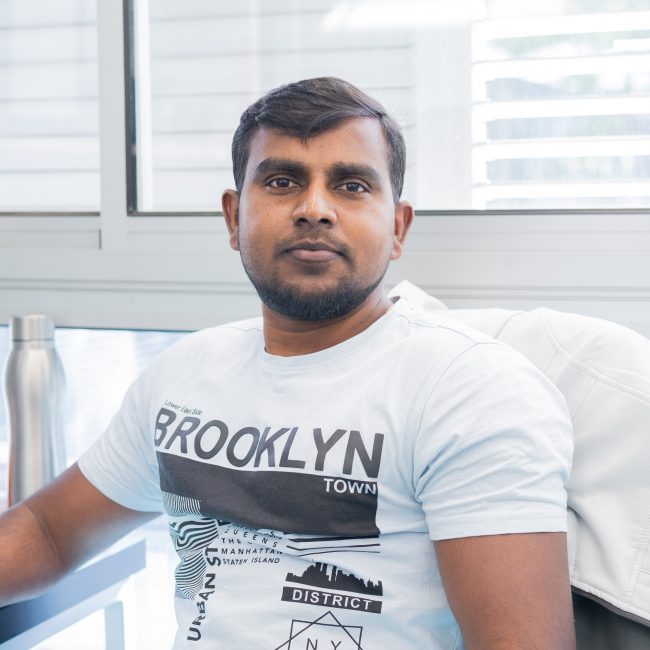Thirusangumurugan senthamarai completed his Master Degree in general chemistry in Manonmaniam Sundaranar University, India. After a master’s degree, he joined Syngene International Limited, India. During that time, he worked on various medicinal organic chemistry projects. In 2017, he joined PhD with Prof. Dr. Matthias Beller, Leibniz-Institute for Catalysis (LIKAT), Rostock, Germany. During his time in LIKAT, he worked on using homogeneous and heterogeneous catalysts for organic conversions. In 2020, he completed his PhD and the topic “Sustainable synthesis of amines using molecularly defined and nanoparticles-based catalysts”. After the doctorate, he continued postdoc in the same place. 2022, he started 2nd postdoc with Prof. Dr. Arjan W. Kleij, Institute of Chemical Research of Catalonia (ICIQ), Tarragona, Spain. In ICIQ, he performed synthesis of biopolymers using CO2 and natural bio waste. Apart from chemistry, he enjoys playing volleyball, exercise such as running and going to the gym.
Dr. Thirusangu M. Senthamarai
Prof. Arjan W. Kleij
The development of bio-supported homogeneous organocatalysts with improved recycling potential through sequential de- and re-polymerization and their use in CO2 valorization catalysis

From 19/06/2023 to
18/06/2025
RECIRCULATE
The use of homogeneous catalysis is currently limited as they lack the ability to be easily recycled, and thermal deactivation of the catalyst cannot be always avoided. These features present important hurdles for the application of homogeneous catalysts in commercial processes and represents an open challenging. Designing ways to bridge the advantages properties of homogeneous and heterogeneous catalysis through the creation of supported homogeneous catalysts with well-defined active sites having high stability and recycling potential creates new incentives for circular type homogeneous catalysts with application potential in synthetic chemistry. In this project, several approaches are presented to realize this challenging goal. First, well-known N-heterocyclic bases such as TBD and DBU will be immobilized onto a biobased polycarbonate and their activity optimized in the synthesis of glycidol carbonate by a sequential catalyst testing-depolymerization-repolymerization approach. The depolymerization will be facilitated by a base catalyst, while the repolymerization will be carried out through a known procedure developed at the host laboratory. This allows to optimize and fine-tune the catalyst structure in terms of active site separation, concentration and local micro-environment. In order to be able to extend the recycling of the catalyst components to a fully recyclable system, a cross-linked version will be created and tested during an industrial secondment. A second strategy builds on a controlled copolymerization of pre-functionalized biobased monomers that feature two separate catalyst components. Their successful copolymerization and variation of their relative ratio permits the optimization of the catalytic activity of this binary system in CO2 valorization through a similar catalyst testingdepolymerization- repolymerization sequence, and ultimately to a generic process that allows to recycle a homogeneous catalyst through a unique approach.
![]() This project has received funding from the European Union’s Horizon Europe research and innovation program under grant agreement 101110356
This project has received funding from the European Union’s Horizon Europe research and innovation program under grant agreement 101110356